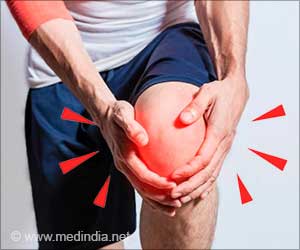The new study, which is a part of an international study called TRIGR will research on the possibilities whether early nutritional modification may prevent type 1 diabetes later in childhood.
A new EU-funded Diabetes Prevention study will be able to answer this question within the next 10 years. The study, which is a part of an international study called TRIGR (Trial to Reduce IDDM in the Genetically at Risk) and coordinated by University of Helsinki, Finland, will research on the possibilities whether early nutritional modification may prevent type 1 diabetes later in childhood.
Type 1 diabetes is a growing health problem among European children. European data indicate that the disease incidence has increased five-six-fold among children under the age of 15 years after World War II, and there are no signs that the increase in incidence is leveling off. The most conspicuous increase has been seen among children under the age of 5 years.The TRIGR study is the first study ever aimed at primary prevention of type 1 diabetes. The study is designed to answer to the question whether excluding cow's milk protein from the infant's diet decreases the risk of future diabetes. All subjects are followed for 10 years to get information on whether the dietary recommendations for infants at increased genetic risk of type 1 diabetes should be revised.
Starting in May 2002, 76 study centres from 15 countries (Australia, Canada, the Czech Republic, Estonia, Finland, Germany, Hungary, Italy, Luxembourg, the Netherlands, Poland, Spain, Sweden, Switzerland and USA) have been recruiting families for the study. To be eligible the newborn infant has to have at least one family member (mother, father and/or sib) affected by type 1 diabetes and carry a HLA genotype conferring increased risk for type 1 diabetes. The initial recruitment target of 2032 eligible infants was reached at the be-ginning of September 2006, but the Study Group has decided to continue recruitment till the end of December 2006 (when the EU contribution will finish) to make the study even more powerful statistically.
A majority of the study participants (52%) have been recruited in Europe. The International Coordinating Center (ICC) is located at the University of Helsinki, Helsinki, Finland and the Data Management Unit (DMU) at the University of South Florida, Tampa, Florida, USA. The trial has logistically been a true challenge for both the ICC and DMU. DMU has been successful in establishing a secure, real-time, web-based, interactive data management system that works extremely well. This system can be directly applied to future international multicenter studies.
The TRIGR study is generating a wealth of information on breast-feeding practices, infant nutrition and growth in young children in various countries. At 2 weeks of age almost all the participating infants were breast-fed. Exclusive breast-feeding continued longer in Europe than in North America. More than one third of the infants (35 %) received other foods in addition to breast milk and/or infant formulas at the age of 4 months, while WHO recommends that supplementary food should be introduced at the earliest by the age of 6 months. In Europe the first foods to be introduced are typically vegetables and fruits, whereas gluten-free cereals are most commonly introduced in North America.
Newborn infants in Northern Europe (NE) had a higher birth weight but a shorter birth length than infants in Central and Southern Europe (CSE). The NE children remained heavier than those from CSE at least up to the age of 18 months. The NE children were also taller than the CSE children starting already from the age of 3 months up to the age of 18 months. Accelerated growth in infancy has been identified as a risk factor for type 1 diabetes later in childhood. Accordingly the observed growth pattern may contribute to the higher incidence of type 1 diabetes in NE compared to CSE.
Advertisement
SRI






